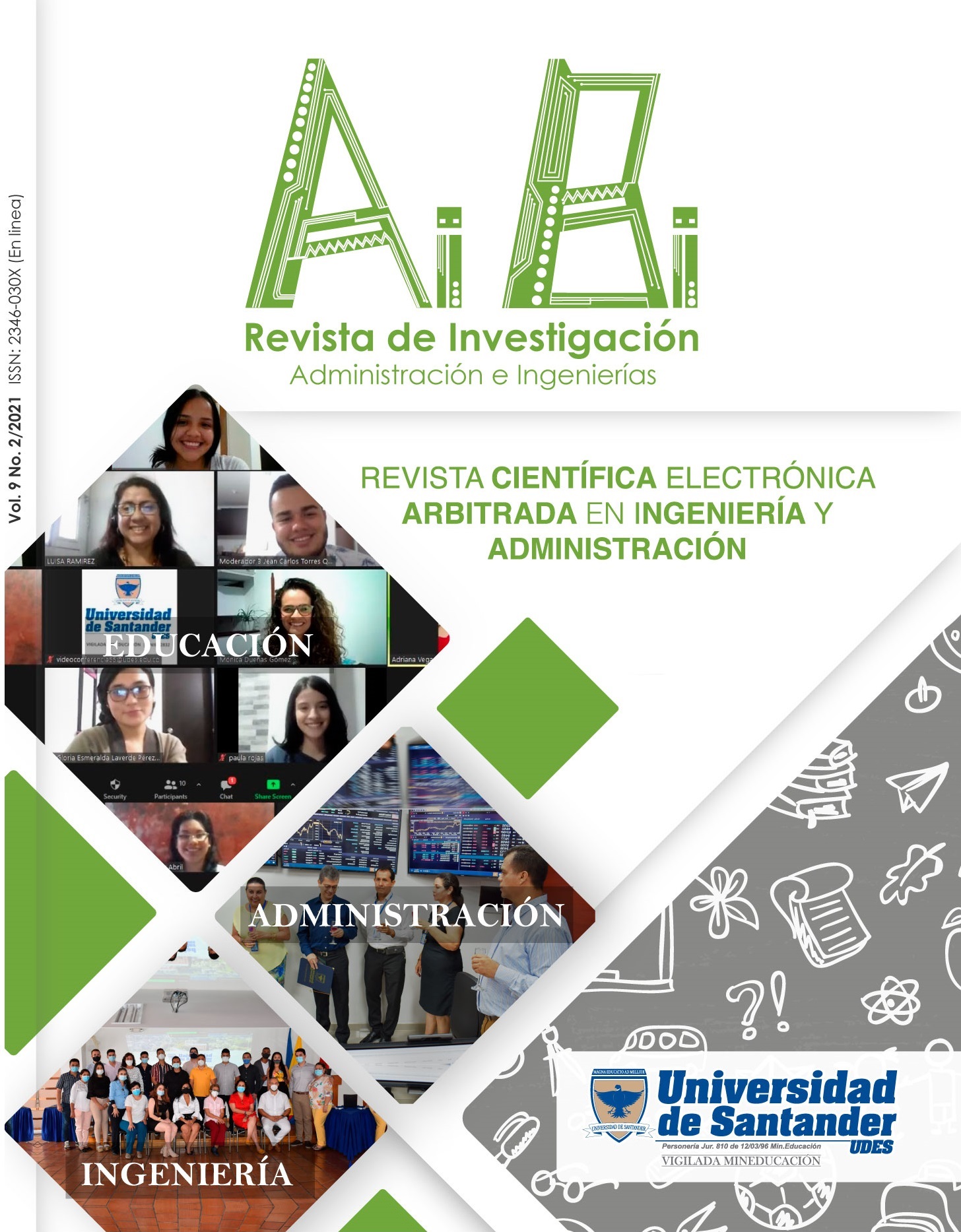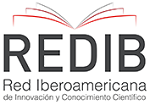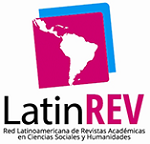Implementation of a webquest strategy through learning and knowledge technologies for strengthening literacy and writing in middle education
DOI:
https://doi.org/10.15649/2346030X.2395Keywords:
writing, reading, learning and comunication technologies, information and comunication technologies, webquestAbstract
The Learning and Knowledge Technologies promote changes in the teaching and learning processes, since they enhance digital skills through the use of Information and Communication Technologies and generate significant learning. This project determines the impact of the implementation of a WebQuest learning strategy, promoting the use of The Learning and Knowledge Technologies to strengthen reading and writing skills, in secondary education. The objectives of the project are to analyze the impact of the implementation of the strategy and inquire about the meanings of Information and Communication Technologies mediated classroom experiences in the use of The Learning and Knowledge Technologies for the students of the Laura Vicuña Educational Institution. The methodology with which the project is executed is action research, in it quantitative and qualitative data are collected and analyzed. The results suggest that the incorporation of active pedagogies with the exploitation of Information and Communication Technologies and the promotion of The Learning and Knowledge Technologies favor the development of the skills necessary for reading and writing and motivate teaching and learning processes through constructivist approaches.
References
I. Molina, La evaluación como estrategia de aprendizaje. En Suarez C. (comp.) Cuadernos de la maestría en docencia e investigación universitaria, tomo I, 3-12. 2013.
Derechos Básicos de Aprendizaje [DBA] Ministerio de Educación Nacional. 2015.
B. Dodge, WebQuest: Un recurso educativo para su uso en el aula. Capítulo 1 Concepto y elementos de una WQ. [En línea] http://tecnologiaedu.uma.es/materiales/wq/archivos/cap1_WQ__Definicion.pdf.
J. Quintero, y J. Muñoz, Investigación-acción pedagógica en la formación de educadores. En: Ávila, R. (comp.), la investigación-acción. Pedagógica experiencias y lecciones. 115-157. 2003.
A. Salgado, Investigación cualitativa: diseños, evaluación del rigor metodológico y retos. Liberabit, 13(13), 71-78. [En línea] http://www.scielo.org.pe/scielo.php?script=sci_arttext&pid=S1729-48272007000100009&lng=es&tlng=es.
R. Hernández, P. Baptista y C. Fernández, Metodología de la Investigación. Mexico: McGraw-Hill. 2006.
R. Lozano, “Las ‘TIC/TAC’: de las tecnologías de la información y comunicación a las tecnologías del aprendizaje y del conocimiento”. 2011. En http://www.thinkepi.net/las-tic-tac-de-las-tecnologias-de-la-informacion-y-comunicacion-a-las-tecnologias-del-aprendizaje-y-del-conocimiento.
M. Velasco, Las TAC y los recursos para generar aprendizaje. Revista ILEYA, vol3. 2. 771-777. 2017. https://doi.org/10.22370/ieya.2017.3.2.796.
A. Carrillo, Webquest para promover competencia comunicativa en lectura y escritura. Retrieved from https://ciencia.lasalle.edu.co/lic_lenguas/163. 2015.
A. Fernández, Metodologías activas Para la formación de competencias. Educatio Siglo XXI, 24, 35-56. [en línea] https://revistas.um.es/educatio/article/view/152 2006.
M. Cortés, Integración de las TAC en Educación. [en línea] https://reunir.unir.net/bitstream/handle/123456789/1846/2013_06_07_TFM_ESTUDIO_DEL_TRABAJO.pdf?sequence=1. 2013.
J. Ojeda, WebQuests como estrategia de enseñanza-aprendizaje para una clase cooperativa en contexto de la educación inclusiva. [En línea] https://reunir.unir.net/handle/123456789/1794. 2013.
Q. Prat y O. Camerino, Las tecnologías del aprendizaje y el conocimiento (TAC) en la educación física, la webquest como recurso didáctico. Educación física y deportes, N° 109, 44-53. Disponible en: https://www.redalyc.org/pdf/5516/551656913005.pdf 2014.
V. Amar, La importancia de la TAC en la educación y cambios sociales. Revista De Estudios Socioeducativos. ReSed, (5), pp. 16-28. 2017. ecuperado a partir de https://revistas.uca.es/index.php/ReSed/article/view/S.1.1N5.
A. Morales, WebQuests: Una propuesta metodológica para investigar en la Web. [En línea] https://studylib.es/doc/1058363/webquests-una-propuesta-metodol%C3%B3gica-para-investigar-en-l. 2010.
H. Álvarez, Aprendizaje integrado con WebQuests: dando forma y sentido al Aprendizaje Basado en Proyectos. Edunivatic, vol 17, n° 19, 4-7. 2015.
S. Hurtado, Las Webquest en la lectura y escritura por placer, para entender, ser y hacer en contextos con estudiantes de 5° de la I E Técnica la Marina. 2014.
P. Hernández, Política pública para contribuir al mejoramiento en la calidad de la educación a nivel primaria, secundaria y media del Municipio de Girón respecto al ISCE, mediante implementación de tecnologías de la información y las comunicaciones. 2017
R. Siza, Incidencia de una propuesta didáctica que integra los medios informáticos, desde el enfoque socio-constructivista en el desarrollo de la competencia matemática. 2009.
G. Mendieta, Informantes y muestreo en investigación cualitativa Investigaciones Andina, vol. 17, núm. 30, abril-septiembre, 2015, pp. 1148-1150. Fundación Universitaria del Área Andina. 2014.
B. Restrepo, La investigación-acción educativa y la construcción de saber pedagógico Educación y Educadores, núm. 7, 2004, pp. 45-55. 2014 [En línea] https://www.redalyc.org/pdf/834/83400706.pdf.
J. Hurtado, Metodología de la investigacón holística. 2015.
ICFES Interactivo [En línea] https://www.icfes.gov.co/web/guest/resultados-saber.
B. Dodge, Clasificación de las tareas [En línea] http://www.cyta.com.ar/elearn/wq/clasificacion.htm. 2000.
M. Area, WebQuest: Una estrategia de aprendizaje por descubrimiento basada en el uso de la internet [En línea] http://www.quadernsdigitals.net/datos/hemeroteca/r_1/nr_527/a_7374/7374.pdf.
I. Moreno, Lo que es la webquest [En línea] https://docs.google.com/a/iergranjasinfantiles.com/viewer?a=v&pid=sites&srcid=ZGVmYXVsdGRvbWFpbnx0aWN5dGFjZW5lZHVjYWNpb258Z3g6NTRkNTMzN2M0YWJhNTYwOA 2013
L. Miranda, Estrategias pedagógicas mediadas con las TIC-TAC, como facilitadoras del aprendizaje significativo y autónomo ISSN 1657-0111, ISSN-e 2346-2884, N° 15. 212-239. 2015 [En línea] https://dialnet.unirioja.es/servlet/articulo?codigo=6081579.
C. Tünnermann, El constructivismo y el aprendizaje de los estudiantes Universidades, núm. 48, enero-marzo, 2011. 21-32 Unión de Universidades de América Latina y el Caribe Distrito Federal, Organismo Internacional [En línea] https://www.redalyc.org/pdf/373/37319199005.pdf.
J. Gómez y C. Bonilla, Estrategias pedagógicas apoyadas en tic: propuesta para la educación contable. AiBi, vol. 8, n° 2, 142-153. 2020
R. Alsawaier, The International Journal of Information and Learning Technology The effect of gamification on motivation and engagement. The International Journal of Information and Learning Technology, vol. 35, n°. 1, 56-79, 2018.
Published
How to Cite
Issue
Section
Altmetrics
Downloads
License
The journal offers open access under a Creative Commons Attibution License

This work is under license Creative Commons Attribution (CC BY 4.0).












